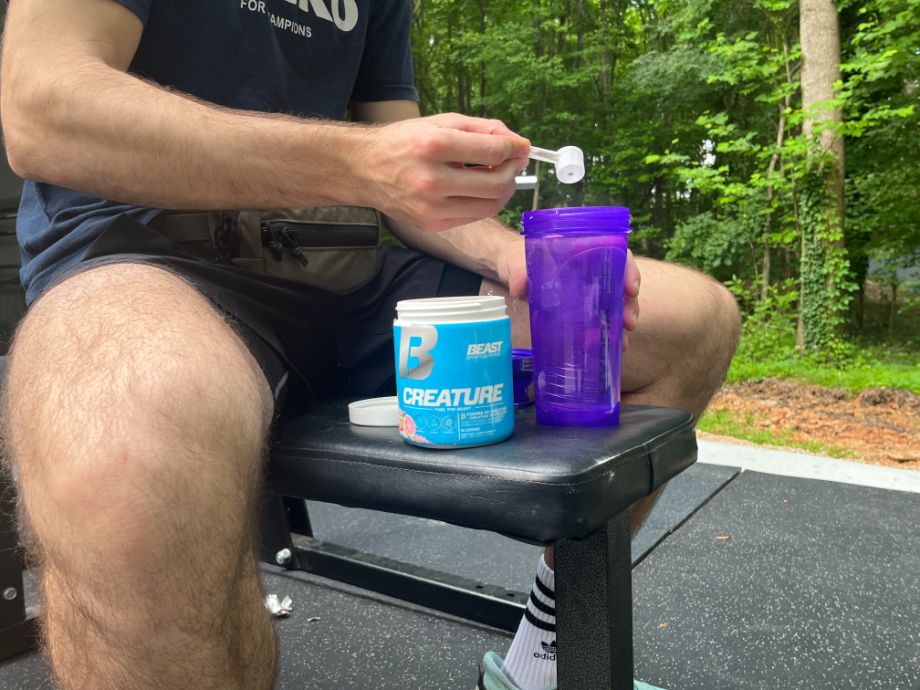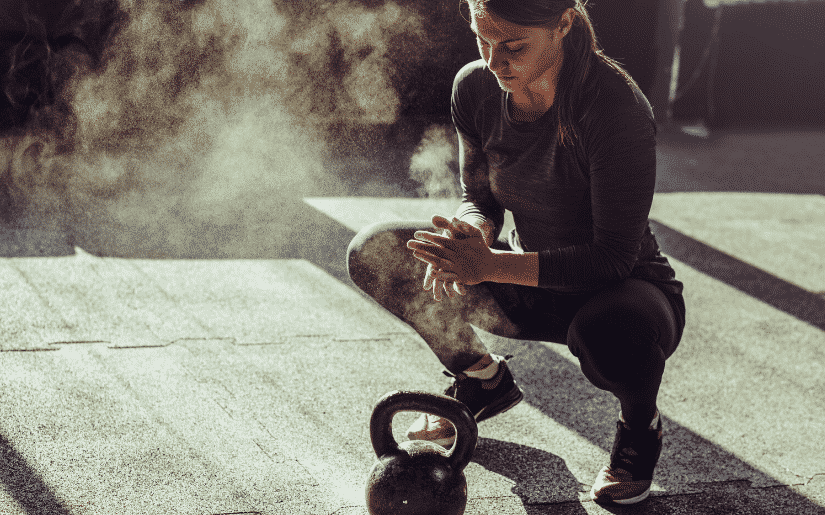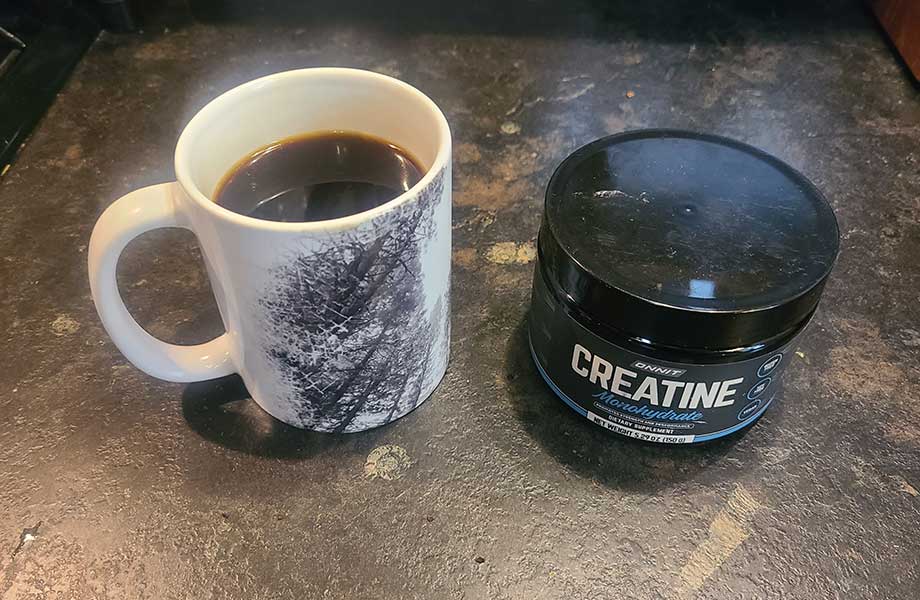Curious about how mixing creatine and caffeine could impact your workout results? The dynamic duo of these energy-boosting compounds has sparked debates among fitness enthusiasts. In this post, we will break down the potential effects of combining creatine and caffeine to optimize your performance at the gym.

While creatine and caffeine are both known for their energy-enhancing properties, understanding how they interact in your body is key. Dive into the nuances of these popular supplements to make informed decisions about your pre-workout routine.
Contents
Does Creatine Have Caffeine?
If you’re wondering whether creatine contains caffeine, the answer is no. Creatine and caffeine are two distinct compounds with different effects on the body. Creatine is commonly found in meats and fish and is known for its energy-boosting properties without the stimulating effects of caffeine.
When you consume creatine supplements, you’re not ingesting any caffeine. Therefore, if you’re sensitive to caffeine or trying to limit your intake, creatine can be a suitable option to enhance your workout performance without the added stimulant.
If you’re concerned about mixing creatine and caffeine, rest assured that you can take them separately without any potential interactions. While both compounds can enhance exercise performance in their unique ways, they do not cancel out each other’s benefits when taken together.

It’s essential to understand the differences between creatine and caffeine to make informed decisions about your pre-workout routine. By knowing that creatine does not contain caffeine, you can tailor your supplement intake to suit your fitness goals and tolerance levels effectively.
Is Creatine A Stimulant?
Creatine is not a stimulant. Although it boosts energy levels, it does so by increasing phosphocreatine stores in your cells, providing a sustained energy supply.
Caffeine, on the other hand, is a stimulant that works by blocking adenosine receptors, reducing tiredness, and enhancing focus. It can also elevate dopamine and norepinephrine levels.
When considering supplementation, remember that creatine naturally occurs in foods like red meat and poultry. However, supplementing with creatine can significantly increase phosphocreatine stores in muscles, leading to enhanced ATP availability for improved power, strength, and muscle gains over time.
You can take creatine at any time of day, with optimal results seen with a daily intake of 3-5 grams of creatine monohydrate.
Recent research has suggested potential benefits from combining caffeine and creatine, but understanding their individual effects is crucial for tailoring your supplementation to your specific fitness goals.
Does Creatine Keep You Awake?
No, creatine does not keep you awake. You can take creatine at any time of the day without worry. The timing isn’t crucial, as long as you remember to take it regularly.
Benefits of Creatine Supplementation
Supplementing with creatine boosts your phosphocreatine stores in muscles, enhancing ATP availability, the primary energy source for cells. This leads to increased power, strength, and lean muscle mass over time.
Optimal Intake of Creatine
For best results, consume 3-5 grams of creatine monohydrate daily. Stay consistent with your intake to maximize the benefits of creatine supplementation.
Hydration is Key
Ensure you stay hydrated when taking creatine. Drink plenty of water throughout the day, especially during exercise, to support optimal performance and overall health.
Timing Matters
Remember to incorporate creatine into your daily routine for sustained benefits. Whether it’s before or after a workout, find a time that works best for you and stick to it for optimal results.
Does Creatine Give You Energy?
Creatine does not directly supply energy in the form of calories like carbohydrates and fats do. Instead, it plays a crucial role in the energy systems of your cells, particularly during high-intensity, short-duration activities such as sprinting or heavy lifting.

Creatine is stored in your muscles where it is used to produce ATP (adenosine triphosphate), the primary energy currency of the cell. During intense physical activity, ATP is broken down to release energy. The body’s natural ATP stores are limited and can only sustain high-intensity activity for a few seconds. Creatine supplementation increases the available pool of creatine phosphate, a molecule that helps rapidly regenerate ATP from ADP (adenosine diphosphate), thus enhancing the body’s capacity to perform high-intensity work for longer periods.
How Should You Feel After Taking Creatine?
After taking creatine, you might not immediately feel a drastic change, as its benefits accumulate over time rather than providing an instant energy boost like caffeine. Here’s how you might feel after starting a creatine supplementation:
1. Increased Energy During Workouts:
Creatine aids in the production of ATP (adenosine triphosphate), which is a key energy source for muscle contractions. Over time, with consistent supplementation, you may notice an increase in your energy levels during high-intensity, short-duration activities like sprinting or weight lifting.
2. Enhanced Muscle Recovery:
Some users report improved muscle recovery after workouts with creatine supplementation. This can translate into feeling less fatigue and reduced muscle soreness between training sessions.

3. Greater Exercise Performance:
As your body adjusts to having higher creatine stores, you might experience improvements in your exercise performance, including increased strength, endurance, and power output during workouts.
4. Weight Gain:
Creatine can cause your muscles to retain water, leading to weight gain. This is generally not fat gain but an increase in water weight, which can make your muscles appear fuller and larger.
5. Hydration Awareness:
Creatine pulls water into your muscle cells, so you might feel an increased need for hydration. It’s important to drink plenty of water to support this process and maintain overall hydration.
6. No Immediate Sensation:
Unlike stimulants, creatine doesn’t cause an immediate “rush” or “buzz.” Any changes in energy or performance will be more gradual as your creatine phosphate stores increase.
Creatine vs Caffeine
Here’s a quick breakdown of the key differences between these two powerhouses:

- Creatine: Known for increasing cellular energy stores, creatine acts as a natural energy enhancer without causing sleep disturbances. It’s a go-to supplement for improving strength and power during short, intense activities.
- Caffeine: As a stimulant, caffeine is commonly found in coffee, tea, and energy drinks. While it can provide a quick energy boost, caffeine may also lead to jitters and sleep disturbances if consumed in excess.
- Performance: Creatine is favored for activities lasting less than 30 seconds, making it ideal for explosive movements. On the other hand, caffeine is often used for endurance activities due to its stimulant effects.
- Hydration: Contrary to popular belief, caffeine does not act as a diuretic and can actually enhance hydration, especially in individuals engaging in regular exercise.
Frequently Asked Questions
Does creatine disrupt sleep like caffeine?
Creatine does not interfere with sleep patterns and does not act as a stimulant like caffeine. It provides energy to cells without causing sleep disturbances.
Can creatine provide instant energy like coffee?
Creatine does not offer a quick energy boost like coffee. It helps replenish energy stores in muscles on a cellular level, providing sustained energy for short, intense activities.
Does creatine impact sleep quality?
Creatine supplementation may help reduce sleep depth and duration by affecting brain chemicals, but it can also improve cognitive and physical performance after sleep loss.
Can creatine be mixed with protein?
Yes, you can mix creatine with protein powder for added convenience. While it won’t enhance strength or energy benefits, combining them is a practical approach for supplementation.

Hello, I’m Ravindra. Over the years, I’ve immersed myself deeply into the world of fitness and health, transforming both my body and mind. Writing has allowed me to share my journey, insights, and expertise with those just starting out and seasoned fitness enthusiasts alike. Beyond just routines and diets, I believe in inspiring others to adopt a holistic approach to well-being.
